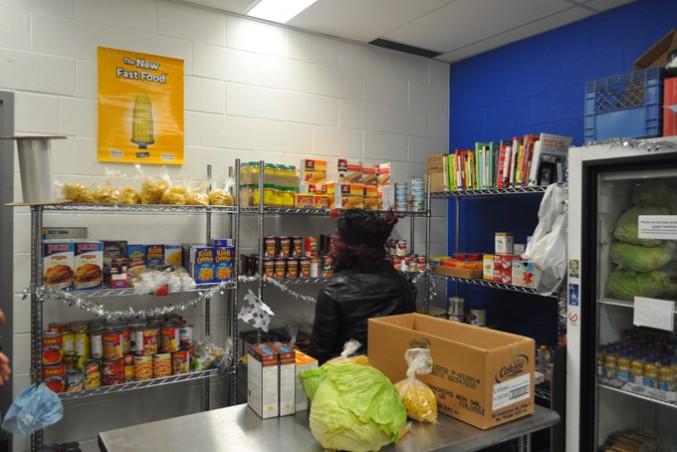By Lisa Cumming
The Good Food Centre at Ryerson has 350 registered users and is constantly getting new sign-ups, according to Alison Townsley, a student volunteer who works in the centre.
Previously known as the Community Food Room, the centre offers access to food for students and faculty who are struggling with finances.
The centre releases an annual “Hunger Report” – which is not posted publicly but is available for anyone who asks – that is used “for [the Good Food Centre’s] understanding,” said Nicola Nemy, another centre volunteer.
According to the Hunger Report, last year there were approximately 422 people from the Ryerson community registered between September 2013 and July 2014. Over 11 months of service, there were 2,528 visits and 92 per cent of visitors were full-time students.
The report for this year has not yet been released.
This year the centre can expect “five new people on a slow day,” Townsley said.
It operates on a points system. Individuals only taking food for themselves receive 10 points, and five extra points are rewarded for those with dependants. “Students (and faculty) may come in shopping for two kids at home,” Townsley said. The system is based on trust and requires no formal background check.
Daily Bread Food Bank contributes towards the centre with deliveries coming every Tuesday. They are a distributor of food to more than 200 food banks and meal plan programs in Toronto, along with providing resources, like job training, for those in need.
Food donations brought in and purchases of grocery store goods funded by monetary donations supply the rest of the food. “We got our deliveries Tuesday, and look at the shelves now,” Townsley said. The weekly delivery is
“not measured or regulated” and just depends on how much the Daily Bread delivers, Nemy said.
“If I had to speculate why the use of the centre has increased: the high cost of housing to live in the city and the cost of tuition,” Townsley said. “Also, more people know about the centre than before.”
“We don’t feel comfortable asking students for money,” Townsley said. “[The centre needs to] have more events to reach outside of the student population.”
Despite the increase in individuals using the centre, management tries to accommodate the needs of every person. The number of users doesn’t include the family members they support, so the accommodations can be hard to meet.
Townsley said setting aside specific items like almond milk for those who have dietary restrictions because there isn’t much of it to go around is common practice.
The centre doesn’t take any measurements for how much food they give out per week, Nemy said.
The needs, food-wise, for the centre are “definitely not, not even close” to being met, Townsley said.












Leave a Reply